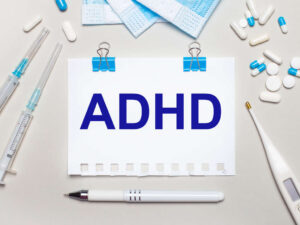
6 Things You Never Realized Were Related to ADHD
Did you know that, over time, ADHD can show itself through various symptoms? But unfortunately, not many people are aware of what these symptoms are. This is precisely why, most of the time, ADHD goes unnoticed for a long time.
Emerging in childhood, ADHD manifests as a complex interplay between brain circuits responsible for attention, impulse control, and motor activity.
Since ADHD is a developmental disorder, many believe that it doesn’t affect or develop in adults without first appearing in childhood. However, the research says otherwise. Earlier people believed that ADHD would disappear once the children grew up.
But now, as medical science has advanced, it is believed that many of ADHD symptoms can linger on. Many don’t even know the symptoms they are experiencing are signs of ADHD. Want to know what those are?
Let’s find out.
1. Always Talking
You might have noticed that some people, including yourself, always keep talking. This may include talking over people or cutting them off during a conversation, taking chat off-topic, or trying to be a know-it-all to dominate the conversation.
It may have been a habit that has stayed with them since childhood, and they might’ve even gotten in trouble for it, such as disrupting class lessons. But regardless, it can surely be a sign of ADHD. The constant habit of disrupting others may come from the impulsivity of ADHD, whereas talking too much can be connected to hyperfocus.
2. Extreme Procrastination
Picture the ADHD brain as a relentless adventurer, always seeking the next exhilarating experience.
Dopamine, the brain’s in-house thrill-maker, is often in short supply for these explorers, making them crave activities that ignite excitement and satisfaction. However, routine tasks, those necessary but ordinary chores of life, often fail to deliver the same dopamine rush, leaving the ADHD brain feeling like a seasoned traveler trapped in a mundane waiting room.
Like a scuba diver longing for the ocean’s depths when faced with a backyard pool, individuals with ADHD may devise clever ways to escape these uninspiring tasks, seeking more stimulating pursuits to satisfy their thirst for adventure.
3. Having Trouble Setting Priorities
Have you ever had trouble prioritizing which to do immediately and which to put on hold? People who have ADHD can also experience this unwanted surge of confusion whenever they want to wind up things at hand.
This is another common symptom among people with ADHD that often goes unnoticed. We like to believe that it is because we have so much on our plate and want to finish everything on time.
While some of that is true, having difficulty prioritizing certain things can also be because you may have ADHD.
4. Impulsive Purchases
Most people who have ADHD are more likely to make poor financial decisions, another symptom that goes widely unnoticed.
This aspect is again related to the thrill of dopamine. They want to put off the anxiety related to paying bills or making money, which is why there is a thousand percent more chance they will spend impulsively to get the reward they are seeking.
In ADHD brains, the basal ganglia, a key hub for reward processing, operates differently. Dopamine, the brain’s motivator, is scarce, making routine tasks unappealing. This deficit drives a constant search for external stimulation like a bee hopping between bright flowers to get its nectar fix.
However, with targeted interventions that boost dopamine and provide structure, we can help individuals with ADHD build bridges over neural gaps and transform their brain stations into hubs of accomplishment, channeling their unique energy into success.
5. Losing Sense of Time
Another common symptom that might be linked to ADHD is losing track of all time. Getting late to work or an official commitment once or twice can be coincidental. But being always late and never being able to keep track of time is a serious sign of ADHD that many people don’t realize.
Scientists still haven’t figured out which part of the brain is responsible for time blindness. However, it is said that the prefrontal cortex, the part of the brain that helps executive functioning and keeps attention intact, might be responsible.
It makes sense why someone with ADHD would lose time, considering how their prefrontal cortex is already haywire and has trouble executing even the simplest of tasks.
6. Sudden Emotional Outbursts
Instead of feeling emotions in a measured way, individuals with ADHD often experience them in intense bursts, swinging from anxious and edgy to elated and talkative or even frustrated and aggressive, often seemingly out of the blue.
This rollercoaster ride of emotions isn’t a personal failing but rather a symptom of ADHD’s core challenges.
“It’s connected to managing attention, regulating energy, and finding the right amount of mental stimulation,” explains Dr. O’Shea. “Focusing solely on the emotional outbursts misses the underlying ADHD mechanisms, potentially leading to misdiagnosis and overlooking this crucial symptom.”
Final Thoughts
Living with ADHD is a constant struggle. You’re continuously on the verge of breaking down while making sense of why things seem so challenging to you when they’re not in reality.
While many mental health professionals suggest getting therapy and going to support groups for managing your lifestyle with ADHD, you can also buy Adderall online or go to a local store for short-term treatment.
The drug is highly recommended for short-term treeatment of ADHD and truly helps managing a better, more nuanced lifestyle.


